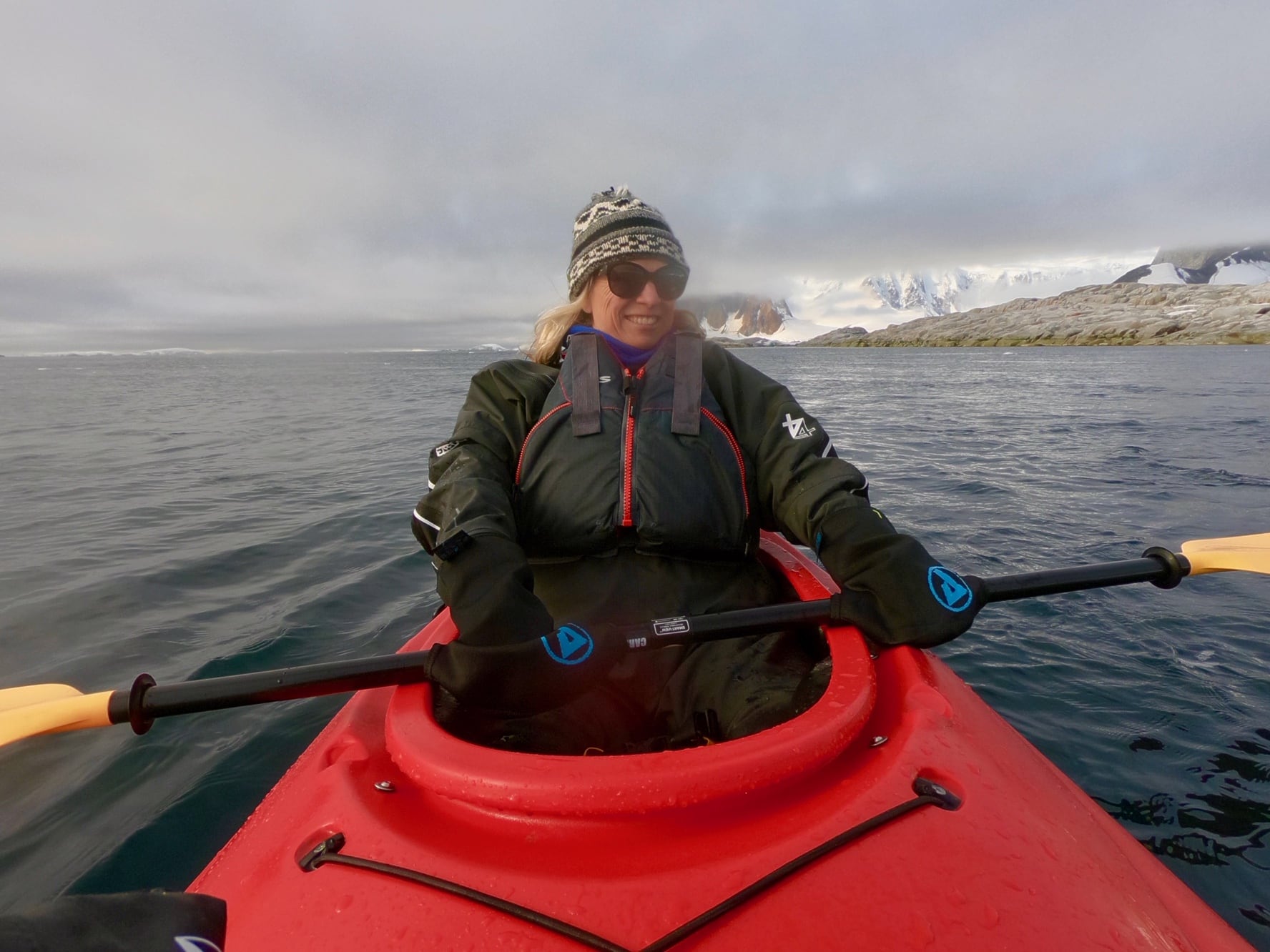Stranded at sea by COVID-19

It’s my second time sailing west through Chile’s Magellan Strait. The first time was 19 days ago, and in that time, the whole world has changed.
Nineteen days ago, I was starting the trip of a lifetime. I had been thrilled to see my first Megallanic penguin, and snapped copious photos of jagged, snow-capped mountains. This time, the mountains are still impressive, but it’s no longer where I want to be. I’m craving my country, my home, where my family and friends are riding out these scary days without me. Dare I say it? I can’t wait to be able to start home-isolation and social distancing.
When I left Australia in late February, South America had only one confirmed case of COVID-19, and Chile itself had none. As a freelance writer, I was covering a story on the bicentenary of the discovery of Antarctica for Australian Geographic. The story had taken me aboard a new luxury cruise ship, on a glorious 18-day cruise through Antarctica and the Falkland Islands. Naively, I presumed that if the virus took off in South America, it would not be until after I was home.
In the days before we were due to disembark, the ports of South America began closing to cruise ships. The crew on my ship held out hope. We had been effectively quarantined together for the last 19 days at sea, with no suspected cases of the virus. We hovered in front of the Chilean town of Punta Arenas.
I had finished packing when I heard that disembarkation would be postponed, and the emotional rollercoaster began. We still held hopes for the following day, but those were soon dashed. It became clear that Chile, along with every country on this continent and many around the world, did not want us.
Like many people, I rely on my family in times like these. Giving them a hug reassures not only them, but also me. Instead of holding my kids’ hands through this terrifying mess, I find myself on the other side of the world, trapped in a luxury floating prison, with no power to change anything.
Although my family is not here, I do have new friends. During the original itinerary, I met my fellow travellers over extraordinary Antarctic experiences. Together we’ve photographed outrageous penguin antics, kayaked through icebergs and braved a polar swim. These fast-tracked friendships have helped immensely in coping with the challenges of being stranded. During the frustration and sadness of not knowing where or how we are ever getting home, we have many moments of laughter, drinking continuous coffees and consoling ourselves by binge-eating desserts.

Of course, my friends and I know there are many stuck in far worse situations. This new ship is extremely comfortable and the meals remain excellent. With no virus symptoms on board, we are free to move around the ship. Passengers jog laps on the roof deck, compare Antarctic photography and discuss their favourite penguins.
The crew are incredibly accommodating, organising science lectures, yoga sessions, trivia nights and watercolour penguin painting. The friendly Filipino workers in the restaurant and housekeeping never stop smiling, despite their industry hitting freefall.
The Filipinos crew even performs a well-rehearsed concert to boost morale. A lifetime of karaoke and dance experience comes in handy, as engineers, receptionists and tender boat drivers entertain us with punchy numbers from Elvis, Michael Jackson and Tom Jones. By the end of the concert, guests and crew are all de-stressing together, with every square inch of dancefloor rocking.
After five days of uncertainty, we are informed that our pleas for help have been heard. Loud cheers erupt as the Captain explains we will proceed back to the Falkland Islands, an overseas British territory. From Punta Arenas, the quickest way to reach the Falklands is to travel east through the Magellan Strait into the South Atlantic. But we are heading west to the Pacific Ocean, around Cape Horn, then east – the long way. Using this route avoids taking on a local pilot as required for the narrow waterways, which could interfere with our quarantine status.
In about three days we should reach the Falklands, and under strict quarantine protocols, on a date yet to be determined, we have been approved to disembark. The military airport will accept our chartered flights, to a yet-to-be confirmed city, before finally, home.
There are still many uncertainties with our journey, and with this whole crazy world. But our boat is moving, and despite not being where I want to be, my new friends and I will find something to laugh about. And if not, we’ll commiserate over more dessert.




